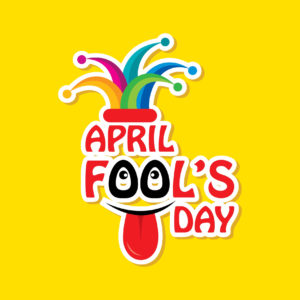
The first day of April is an interesting one. It is the only day of the year where it is somewhat acceptable for people to lie openly and publicly in order to trick others for the fun of it. April Fools’ Day is a weird holiday and one that has been around for much longer than most people realize. Despite the fact many people do not remember to observe this holiday, in a manner of speaking, each year people are reminded of the day’s importance when they are subject to tricks and pranks of all varieties.
The history of April Fools’ Day is as confusing and silly as the holiday itself. The exact origin of the holiday is disputed amongst academics to this very day, but there are some fascinating theories out there attempting to make sense of all the madness.
The Wrong New Year
One of the more interesting opinions on how this holiday came about centers around the celebration of another popular holiday: the start of the new year. In the 1500s, it was common in France for the start of the new year to be observed around March 25th. The celebrating would last for several days and come to an end by April 1st. There were also others in France of higher status who observed the beginning of the year on January 1st. Various theories point out those who celebrated the new year on January 1st coined the term “April fool.”
Supposedly, the people who celebrated on March 25th were viewed as being foolish and going against the grain. The revelers were called “April fools” to write them off, though there is no evidence of pranks, tricks, or hoaxes. Some believe the practice of playing jokes at the start of April can be traced back further than the 1500s to Chaucer’s Canterbury Tales, written in 1392. Though there are a few lines suggesting April 1st is a day of fools, there are conflicting opinions on whether Chaucer is referring to April or May, and the validity of this idea is still debated.
Lost Eyewear
There is also an interesting story related to April 1st and the Netherlands. In the late 1500s, there was a great deal of conflict between Spain and the Netherlands. The Dutch began to revolt and were met with fierce opposition from the Spanish. One specific man, Álvarez de Toledo, was considered a huge threat to the Dutch resistance and was viewed unfavorably by the people of the Netherlands. Álvarez de Toledo was able to hold the armies of the Dutch back for a time, but he soon realized he was far from home and without enough resources to continue.
On April 1st, 1572, Álvarez de Toledo lost control of the city of Brielle in the Netherlands. Historically, the Dutch refer to this day as the “day Alva lost his glasses.” Though the story is one meant to ridicule a person the people dubbed a fool, there seems to be very little connection between the events and the modern idea of playing pranks on others to mark the start of April. Still, this story is one of many around the world where the beginning of April coincides with a person of status making a fool of himself.
Jokes and Hoaxes
April Fools’ Day is difficult to trace back. Though there are official records of it being celebrated dating back to the 1700s, many are still uncertain about how this holiday of hoaxes and jokes came to be. Whether or not the origins are known, April Fools’ Day is still one to keep in the back of your mind. When the 1st of April arrives, remember to keep your wits about you and trust no one.

